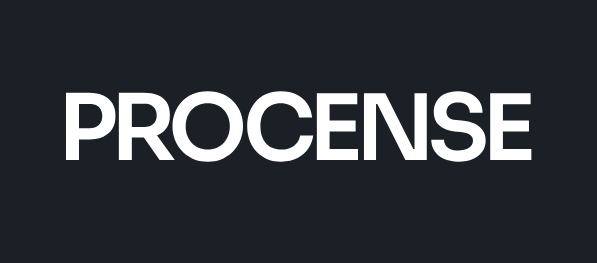Tools & Platforms
Meta is hiring in US to create AI chatbots for India, job role requires …

After the aggrieves AI talent recruitment spree, now it appears that Meta is ramping up its investment in AI-powered chatbots. The company is reportedly hiring US-based contractors to help develop culturally tailored digital personas for its key markets such as India, Indonesia and Mexico. As reported by Business Insider, Meta is offering up to $55 for an hour to candidates who are fluent in Hindi, Indonesian, Spanish and Portuguese. These roles are said to be part of Meta’s broader push to include character-driven AI chambers across its platforms. These contractors are expected to collaborate with regional teams and offer creative direction, shaping chatbot personalities.
Storytelling meets AI: Job requirements
As reported by Business Insider, the job listings posted by Meta reveals that the company is looking for individuals with at least six years of experience in storytelling and character creation. The company also wants the candidate to be familiar with prompt engineering and AI content pipelines. The applicant should also have a deep understanding of the local language.The roles are being filled via staffing firms such as Crystal Equation and Aquent Talent, which posted listings for Hindi, Indonesian, and Spanish-language positions. The company has not yet commented on these job postings but the as per the description it appears to address the concept of chatbot development.
From celebrity bots to DIY AI studio
Meta’s journey into the AI chatbots category started in 2023 with celebrity alter-egos like Kendall Jenner and Snoop Dogg. That experiment was short-lived, and by 2024, the company pivoted to a more open model with the launch of AI Studio—a toolkit allowing users to build their own bots. AI Studio is currently available in the U.S. and Indonesia, and hosts hundreds of user-generated characters.However, the latest hiring spree signals that Meta isn’t leaving localization entirely to creators. Instead, it’s investing in professionally crafted personas to deepen engagement in emerging markets like India.
Tools & Platforms
Feds launch AI inquiry after a chatbot was blamed for a teen’s suicide

Federal regulators and elected officials are moving to crack down on AI chatbots over perceived risks to children’s safety. However, the proposed measures could ultimately put more children at risk.
On Thursday, the Federal Trade Commission (FTC) sent orders to Alphabet (Google), Character Technologies (blamed for the suicide of a 14-year-old in 2024), Instagram, Meta, OpenAI (blamed for the suicide of a 16-year-old in April), Snap, and xAI. The inquiry seeks information on, among other things, how the AI companies process user inputs and generate outputs, develop and approve the characters with which users may interact, and monitor the potential and actual negative effects of their chatbots, especially with respect to minors.
The FTC’s investigation was met with bipartisan applause from Reps. Brett Guthrie (R–Ky.)—the chairman of the House Energy and Commerce Committee—and Frank Pallone (D–N.J.). The two congressmen issued a joint statement “strongly support[ing] this action by the FTC and urg[ing] the agency to consider the tools at its disposal to protect children from online harms.”
Alex Ambrose, policy analyst at the Information Technology and Innovation Foundation, tells Reason that she finds it interesting that the FTC’s inquiry is solely interested in “potentially negative impacts,” paying no heed to potentially positive impacts of chatbots on mental health. “While experts should consider ways to reduce harm from AI companions, it is just as important to encourage beneficial uses of the technology to maximize its positive impact,” says Ambrose.
Meanwhile, Sen. Jon Husted (R–Ohio) introduced the CHAT Act on Monday, which would allow the FTC to enforce age verification measures for the use of companion AI chatbots. Parents would need to consent before underage users could create accounts, which would be blocked from accessing “any companion AI chatbot that engages in sexually explicit communication.” Parents would be immediately informed of suicidal ideation expressed by their child, whose underage account would be actively monitored by the chatbot company.
Taylor Barkley, director of public policy at the Abundance Institute, argues that this bill won’t improve child safety. Barkley explains that the bill “lumps ‘therapeutic communication’ in with companion bots,” which could prevent teens from benefiting from AI therapy tools. Thwarting minors’ access to therapeutic and companion chatbots alike could have unintended consequences.
In a study of women who were diagnosed with an anxiety disorder and living in regions of active military conflict in Ukraine, daily use of the Friend chatbot was associated with “a 30% drop on the Hamilton Anxiety Scale and a 35% reduction on the Beck Depression Inventory” while traditional psychotherapy—three 60-minute sessions per week—was associated with “45% and 50% reductions on these measures, respectively,” according to a study published this February in BMC Psychology. Similarly, a June study in the Journal of Consumer Research found that “AI companions successfully alleviate loneliness on par only with interacting with another person.”
Protecting kids from harmful interactions with chatbots is an important goal. In their quest to achieve it, policymakers and regulators would be wise to remember the benefits that AI may bring and not pursue solutions that discourage AI companies from making potentially helpful technology available to kids in the first place.
Tools & Platforms
Procense Secures $1.5M in Seed Funding To Accelerate AI-Powered Manufacturing

Insider Brief
- Procense, a San Francisco-based industrial automation startup, raised $1.5M in seed funding led by Kevin Mahaffey and HighSage Ventures to expand its team and accelerate its AI-native manufacturing platform.
- The platform leverages LLM-powered tools, IoT sensors, and real-time AI agents to digitize paper processes, optimize workflows, and continuously improve manufacturing operations.
- Early adopters like Dr. Squatch report faster cycle times, reduced paperwork, and improved compliance, showcasing Procense’s ability to modernize production and boost efficiency across industries.
PRESS RELEASE — Procense, a San Francisco-based industrial automation startup developing cutting-edge AI and remote sensing technologies for process manufacturers, has raised $1.5 million in a seed funding round led by Kevin Mahaffey, Business Insider’s #1 seed investor of 2025 and HighSage Ventures, a Boston-based family office that primarily invests in public and private companies in the global software, internet, consumer, and financial technology sectors.
The new capital will enable Procense to expand its team and accelerate development of an AI-native manufacturing platform — one that automates process optimization, adapts to each facility’s unique workflows, and replaces manual configuration with intelligent software agents. This includes LLM-powered tools that digitize paper processes in minutes, AI-driven customization engines for seamless integration and workflow setup, and real-time process engineering agents that identify inefficiencies and drive continuous optimization — transforming how manufacturing systems are deployed, operated, and improved.
“To compete in today’s business environment, it’s obvious that top manufacturers will need Procense’s technology in order to meet the changing regulatory landscape, digitize operational data, and prepare for the next generation of AI-optimized industrial automation,” said Business Insider’s #1 seed investor of 2025, Kevin Mahaffey. “I am excited to help accelerate the Procense business so they can continue on their aggressive growth trajectory and bring innovative AI solutions to even more manufacturers across market segments.”
In today’s uncertain environment of labor constraints, rising production costs and shifting tariff policies, manufacturers are increasingly looking to digitize their operations to prepare for AI technology as a solution to maintain profitability. Procense is laser-focused on delivering proven solutions that streamline operations by leveraging AI tools that decrease onboarding time while enabling data collection and digitization, allowing manufacturers to better navigate these challenges in a cost-effective way that meets and exceeds today’s regulatory requirements.
“Since our launch, Procense has been dedicated to helping its customers modernize their production and quality data management, but today’s changing business environment has made our mission to deliver real-time visibility, automation, and predictive insights more important than ever before,” said Nirat Keswani, CEO and Co-Founder of Procense. “The Procense team is thrilled to have the support of proven investors Kevin Mahaffey and HighSage Ventures. Their track record of identifying and funding successful start-ups represents a meaningful vote of confidence for our industrial automation platform.”
Procense’s full-stack technology enables manufacturers to easily embrace a move to digitalization by integrating innovative Industrial IoT sensors that continuously track and record in-process operational data, allowing for the elimination of cumbersome paper-based and manual data collection. Along with simplifying operations, digitizing production data creates a foundation for future AI applications to identify inefficiencies, recommend corrective actions, proactively optimize production and customize systems over time.
For Procense’s customer, Dr. Squatch, the introduction of the Procense’s platform allowed the company to reduce or eliminate time-consuming manual tasks, improve compliance documentation workflows, to better monitor production, quality, and process deviations. After implementing Procense’s IoT sensors, digitizing paper based processes, adding real-time visibility into in-process production operations, and automating traceability the company realized 10% faster cycle times per batch, which translates into a significant returns for Dr. Squatch.
“We’re completing batches faster with less paperwork and fewer mistakes,” reports Dr. Squatch Lead Operator Leticia Rodriguez. “We’re saving time and gaining confidence. It’s helping us grow production without adding more stress or paperwork.”
About Procense
Procense is revolutionizing industrial data collection and analysis for personal care, specialty chemical, and batch manufacturers. We’re replacing outdated, paper-based, and legacy systems with AI-powered software and industrial IoT sensors for manufactures across food and pharmaceuticals to chemicals and personal care industries.
Our vertically integrated solution modernizes production and quality data management, delivering real-time visibility, automation, and predictive insights. This empowers manufacturers to achieve higher yields, fewer production issues, improved compliance, and a digitized record of critical data, accelerating implementation and creating a tangible competitive advantage.
Learn more at Procense.ai
Contacts
Keith Nowak
Media Relations
[email protected]
Tools & Platforms
Profusa Deploys NVIDIA AI to Build AI-Driven Insight Portal for Continuous Biomarker Monitoring

What You Should Know:
– Profusa,, a digital health company, has announced the adoption of NVIDIA technology to power a new AI-driven insight portal for continuous biochemistry monitoring.
– The portal will be used in combination with Profusa’s Lumee oxygen optical hydrogel sensors and reader system, extending the company’s AI-enabled tools to remote patient monitoring settings. Profusa anticipates an early 2026 rollout of the portal in the European Economic Area (EEA).
– Profusa believes that real-time biochemistry data across a large population is a data set currently missing for AI-enabled healthcare improvements. By combining its Lumee platform with NVIDIA NeMo hardware and software, Profusa plans to build a scalable, AI-fueled technology backbone to improve personalized sensor data accuracy and connect real-time sensor data with electronic medical records (EMR).
Redefining Healthcare with AI-Fueled Workflows
The new portal is designed to provide physicians with “trustworthy, always-on insights” rather than just more dashboards. It aims to translate raw optical signals from the sensors into reliable biometrics and provide actionable clinical context.
Expected capabilities and features of the physician portal include:
- Agentic clinical workflows: An AI-powered assistant that integrates with EMRs, wearables, and home devices to help with notes, orders, care plans, remote monitoring, and triage.
- Time-aligned health data graph: A longitudinal view that combines Profusa biomarkers with EMR data, claims, wearables, genomics, and social determinants to power predictions and coaching.
- Guardrails by design: The system will use policy-aware orchestration to enforce clinical scope, data privacy, and safe responses.
- Model training options: The platform will allow for parameter-efficient tuning and post-training refinement of Profusa’s AI signal processing and clinical reasoning components.
“We believe that real-time biochemistry data across a large population is a data-set that is currently missing to enable the fulfillment of the promise of AI-enabled improvement in healthcare. Profusa is uniquely positioned to provide this proprietary data set, linking therapeutic decisions with real-time biochemistry changes, to generate valuable insights that are lacking today.” Ben Hwang, Ph.D., Profusa’s Chairman and CEO commented, “By combining our Lumee platform with the industry leading NVIDIA NeMo hardware and software stack, we plan to build an AI-fueled, scalable technology backbone for better personalized sensor data accuracy and real-time sensor data connections with electronic medical records (EMR), facilitating treatment and outcome predictions, in addition to establishing a robust data base for clinical literature for disease management.”
-

 Business2 weeks ago
Business2 weeks agoThe Guardian view on Trump and the Fed: independence is no substitute for accountability | Editorial
-
Tools & Platforms1 month ago
Building Trust in Military AI Starts with Opening the Black Box – War on the Rocks
-

 Ethics & Policy2 months ago
Ethics & Policy2 months agoSDAIA Supports Saudi Arabia’s Leadership in Shaping Global AI Ethics, Policy, and Research – وكالة الأنباء السعودية
-

 Events & Conferences4 months ago
Events & Conferences4 months agoJourney to 1000 models: Scaling Instagram’s recommendation system
-

 Jobs & Careers2 months ago
Jobs & Careers2 months agoMumbai-based Perplexity Alternative Has 60k+ Users Without Funding
-

 Podcasts & Talks2 months ago
Podcasts & Talks2 months agoHappy 4th of July! 🎆 Made with Veo 3 in Gemini
-

 Education2 months ago
Education2 months agoVEX Robotics launches AI-powered classroom robotics system
-

 Education2 months ago
Education2 months agoMacron says UK and France have duty to tackle illegal migration ‘with humanity, solidarity and firmness’ – UK politics live | Politics
-

 Funding & Business2 months ago
Funding & Business2 months agoKayak and Expedia race to build AI travel agents that turn social posts into itineraries
-

 Podcasts & Talks2 months ago
Podcasts & Talks2 months agoOpenAI 🤝 @teamganassi

